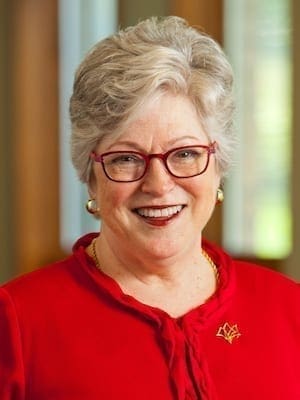On Sunday in Overland Park, Kan., a rabid anti-Semite, white supremacist drove into the parking lot at the Jewish Community Center with the intent to kill. And he succeeded.
He shot a grandfather and grandson (thinking they were Jews, but actually Methodists), missed two others and then drove to a nearby Jewish retirement center and killed a woman.
The metro area of Kansas City and the wider Jewish and Christian communities are bowed down with grief.
This story line is both ancient and contemporary, and the horrific atrocities never are put to rest.
On the eve of Passover and the beginning of Holy Week, this event requires better thinking about guns, religious liberty and the propensity of humanity to scapegoat “others” for the ills of the world.
In earlier times, Christians persecuted Jews for the crucifixion of Jesus, and they read virulent parts of the New Testament as warrant for their action.
The epithet “Christ killers” seemed to justify the targeted marginalization and wounding exploitation of Jewish communities.
Thankfully in recent scholarship, the broad-brush accusation of “the Jews” has been refined, although movies like Mel Gibson’s “The Passion of Christ” do not help.
We have learned that a slender sector of Jewish persons, temple authorities, colluding with Rome allowed the death of Jesus, and that his confrontation with the reigning powers precipitated his execution.
Yet the burden of election, “being chosen,” clings to this historic people. Perhaps it is because of the unique identity God bestows on the Jewish people that others express the mimetic desire to displace and destroy them.
Over the past two summers studying with rabbis in Jerusalem, I have learned that God’s project with Israel, calling them to a covenant relationship, was a test case to demonstrate how God desires intimacy with all humanity.
Sadly, this experiment was more failure than success, in the words of my teachers.
In this week Christians call holy, we confront once again the blood thirst that characterizes sinful humanity.
The “fall to violence,” in the words of Marjorie Suchocki, is the primal expression of rebellion against God and the refusal to live in community with others.
A reading for Monday of Holy Week describes the peaceful ways of God’s servant, whom Christians claim to be the Messiah.
“He will not cry or lift up his voice, or make it heard in the street; a bruised reed he will not break, and a dimly burning wick he will not quench; he will faithfully bring forth justice” (Isaiah 42:2-3).
This faithful Jew shows us the way to live with others. I pray we will be renewed in this season as we consider his pathway.
 Molly T. Marshall is president of Central Baptist Theological Seminary in Shawnee, Kan. A version of this column first appeared on her blog, Trinitarian Soundings, and is used with permission.
Molly T. Marshall is president of Central Baptist Theological Seminary in Shawnee, Kan. A version of this column first appeared on her blog, Trinitarian Soundings, and is used with permission.

